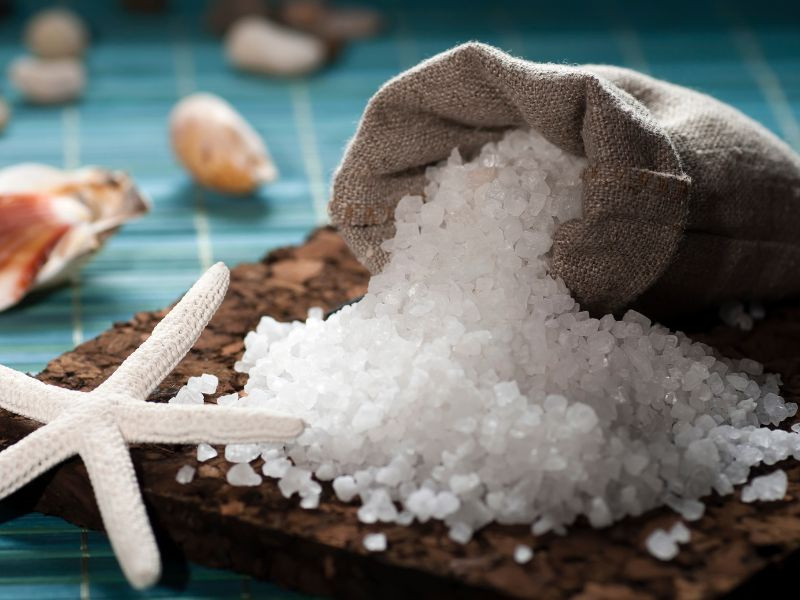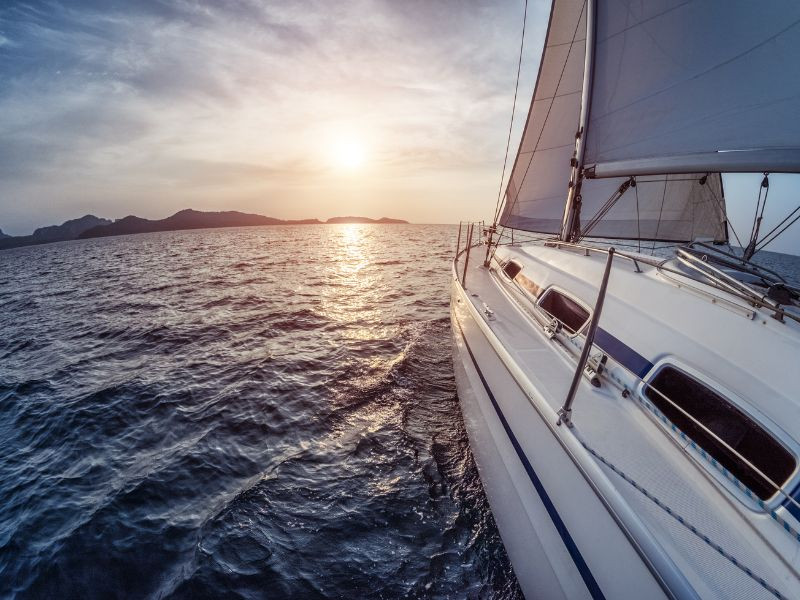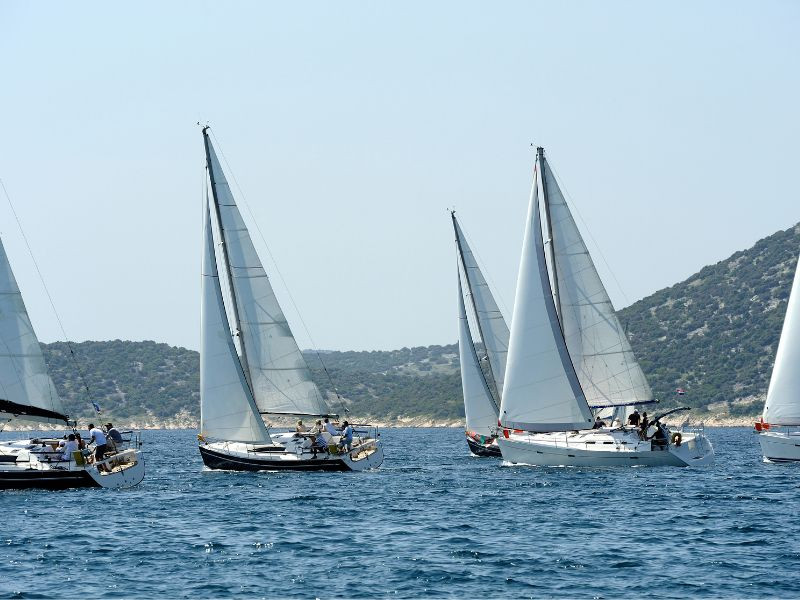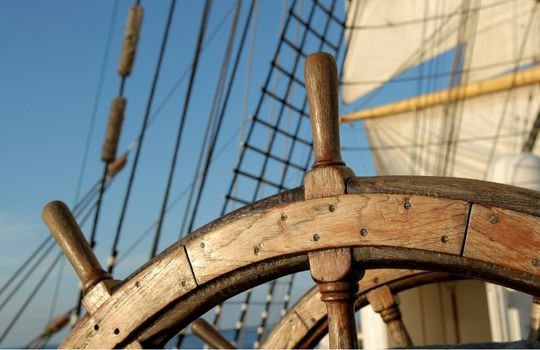21.10.2022.
Have you ever wondered who made the first yachts or who invented sailing? The nautical world is full of fun, and interesting facts, so sit back and enjoy, as we are sure you will love these.
The sailing season is slowly coming to an end. We are furling the sails and having a long-due vacation. The first may be accurate, but the latter not so much, as our team prepares for the next charter season, new marketing strategies and numerous Boat shows. We have no rest, but there is always time for some fun.
We hope you had an activities-packed vacation and that the Croatian coast has fulfilled all your expectations and made your stay unforgettable.
So, to break our routine, we bring you some fun facts about marine life, boats and the sea. We hope to answer the "burning" questions: Is sailing fun, who invented sailing, and why bananas are bad luck on a boat. There is an ocean of funny sailing quotes and puns, but we want to bring you some information about sea life that you might not know.
What is the salinity of the ocean, or how salty is the sea?
How lucky we are that our planet is mainly covered in water? Quite fortunate, even though most of the seawater is entirely undrinkable. However, people have found other uses for it.
The Oceans and seas of the world are used for travelling, transport and sailing. And sailing is rather fun, wouldn't you agree?
But how salty are the oceans, i.e. what is the salinity of the sea? Well, oceans are, on average, quite salty, and it's calculated that the salinity is 35‰ (35 parts per thousand). That is some 35 grams per litre, on average, because not all seas have the same salinity. It's also estimated that there are approximately 1.386.000,000 cubic kilometres of water in oceans and seas.
The Baltic Sea is the least salty sea, with an average salinity of around 6‰, which makes this sea brackish, actually. This fun fact got the Baltic Sea into the Guinness World Records. Measurements of salinity say that the Mediterranean Sea is on the top of sea salinity charts with an average of 38-39‰ and in places such as Palagruža, even more so.

What is the meaning of feeling blue, and where did it come from?
Does something make you blue? We sure hope it's not the end of the sailing season. Have you ever wondered where the term "feeling blue" originated? Why yes, you are correct – it's a sailing term. At least, so it is believed.
It's said that feeling blue has different origins but with the same meaning throughout centuries. The connection of this phrase with sailing is even "bluer" than we thought. In the old days, when the ship lost its captain or an officer, she would fly blue flags and paint a blue stripe along the hull to mark the sad event. So, when the ship would sail to port, everyone would know that a tragedy occurred onboard. And with that, the term feeling blue got its meaning.
Sad indeed. But this fact was disputed by scholars worldwide as every part of the world has a different origin story of the meaning of feeling blue. To be blue is to have the blues, to be knocked sideways, to be down in the dumps, or simply put - to be sad.
The term's origin goes as far as the old Greek mythology, and it was mentioned in literature as far as the 1600s. But wherever the root is, we will not be blue, as one must strive to make everything rosy.
Is it actually possible to sail in a straight line?
Can one sail in a straight line? For sure. Actually, no. Wait. Let us explain. In theory - yes, but not so much in real life.
One Robert Cooke called this route Cooke Passage, of course, and with the help of Google Earth, has demonstrated that this is possible in a video (which you can find on YouTube). The video indicates that you can sail from the Gulf of St. Lawrence in Canada in a completely straight line for 22,229 miles, not ever touching dry land.
This imagined journey of 22,229 miles would be impossible to sail in a perfectly straight line because of the Earth's curvature. Of course, the Earth is not flat as we know, and Cooke Passage is just a theory, but a fun fact, nevertheless.

Where did the "as the crow flies" originate from?
Staying on the same theme of straight lines and sailing, do you know what is the origin of the phrase "as the crow flies"? Your guess is correct. It is unknown if this is actually a sailing reference, but the history is full of data that this could be. And as we are fond of it, we will not dispute it.
Both Wikipedia and Oxford dictionary informs us that the idiom "as the crow flies" means a distance measured in a straight line, so in general, the most direct path you can cross from one point to another.
It is said that long time ago, sailors used to carry crows on their boats, and if they thought they were getting closer to their destination, they would release the said bird, and it would fly towards the closest dry land. Some say that that is not true, and that the idiom transpired because a crow usually flies in a straight line, as bees do. Like the beeline, the crow shows us how to get from one point to another in the quickest possible way.
Sir David Attenborough was supposed to be named Boaty McBoatface
Our humble opinion is that Sir David Attenborough's research is very valuable. We also think the study she does in polar regions, and the vessel's propulsion is a step closer to sustainable navigation.
Surely you are wondering what the most charming twice knighted naturalist has to do with propulsion and polar regions. In 2016, the UK announced they would build a costly polar research vessel and asked the general public to name it.
And the British humour known as unparalleled didn't fail here. The poll won more than 124,000 votes with the name Boaty McBoatface. But in the end, the research vessel was named after Sir David Attenborough, a famous broadcaster and historian.
However, the poll succeeded as the primary underwater robotic vehicle was named Boaty McBoatface. So, RRS Sir David Attenborough now has a little submarine named Boaty.
The fun didn't stop after the naming poll was closed. A couple of thousand people signed a petition in which they wanted the actual Sir David to change his own name into Boaty McBoatface. The renaming was justified because the name change would be "in the interest of democracy and humour".

Is renaming a boat advised?
You found a boat you want to have, but it already has a name? What to do? Can you rename it or not?
One of the most fun facts is that people are almost afraid to rename a boat out of fear of bad luck. Renaming a boat is possible but includes a purging ceremony, champagne and a recitation. So, if you really don't like the name of your new boat or the name itself is a bad pun, and you are not a punny person (sorry, but we saw the opportunity, and we took it), there is no reason not to change it.
Keep in mind that renaming a boat is a ceremony with several steps in the process, such as:
- You have to remove all the evidence of the old name
- Give thanks to the gods of winds for smooth navigation
- Ask (very politely) for Poseidon's protection
- Appease all the gods with spirits, such as wine or champagne
- Rename the boat and set sail on a "maiden" voyage
Another fun fact is that the most popular name for boats and yachts in 2021 was "Andiamo", with "Social Distancing" in a solid 2nd place.
Who invented the first yacht and why?
Where would all sailing enthusiasts and yacht charter operators be today without the Dutch? And no, this is not a trick question.
The Dutch people are believed to be the first ones who made yachts. Dutch jachtschips or jaghts were small wooden boats used primarily to prevent attacks by pirates and thieves.
Pretty quickly, it became customary to sail them to meet larger merchant ships. No time had passed when people realised this "sailing on a yacht" was also fun, and they would sail out with friends and family.
So, we can simply say not much has changed in this regard. Well, it did, but you get the picture.
Who invented yacht regattas?
Hello there, if it isn't the Dutch again. They are not only creditable for leisure sailing but also directly creditable for the invention of yacht racing, known today as a regatta. And who invented regattas per se? The royalty did, of course.
When Charles II of England took the throne in 1660, the Dutch gave him a present – a very luxurious one, fit for a king. It was a yacht named Mary. Mary was the first Royal yacht of the Royal Navy. Soon after that, King Charles became an avid learner of everything about yachts and their architecture. In the end, the royal fleet had more than 20 yachts.
Soon enough, The King transferred his enthusiasm to his brother James, Duke of York, who also became in love with ships and sailing. King and his brother were considered the first yachters as they organised the first race on the river Thames. After some time, yachting became popular amongst the rich and the idle.
In 1720 Ireland, the first ever yacht club in the world, called the Cork Water Club, started a history still lasting to this modern era.

Can you sail under Ždrelac bridge (successfully)?
Summer 2022 has branded Ždrelac bridge as the central disaster location for sailboats that miscalculated their mast height and broke them. Evidently, some people have tried to sail under the bridge with a mast height of over 16.5 meters, even though there are obvious warnings onboard the vessel and all over the bridge area. They failed, of course, making them the main target of poking fun in the media and social media groups. Luckily, no one was hurt.
So, can you sail safely under Ždrelac Bridge? Yes, of course, you can. But not with every sailboat. You must consider that the total height under the bridge is 16,5m which becomes even less with the high tide.
Ždrelac bridge is a 210m long bridge connecting the islands of Ugljan and Pašman, and this passage between islands significantly shortens a sailing trip.
And, why are bananas bad luck on a boat
To conclude this streak of fun facts, we are going to let you know why bananas are considered bad luck aboard a maritime vessel.
Fishermen, sailors and others alike are in unison - absolutely no bananas, bananas are rotten, bad luck. Many sources state different origins of bananas correlating with bad luck onboard ships. The main was that banana cargo in ships would often carry all kinds of pests and spiders, which would wreak havoc onboard.
Some connect bananas as an annoyance, as the old sailing ships when they would have an accident and the cargo has sunk, bananas would be left floating around, thus proclaiming bananas as the main culprit for the wreckage was often.
But before putting all this fruit on the Most Wanted list, we must consider why bananas are not advised to bring on board. As bananas ripen, they are known to produce ethylene gas, which "helps" food spoil quicker.
So, the lore and history are filled with lots of fun and educational information. But the past will never know how much sailing is fun and advanced now and how much we enjoy it.



